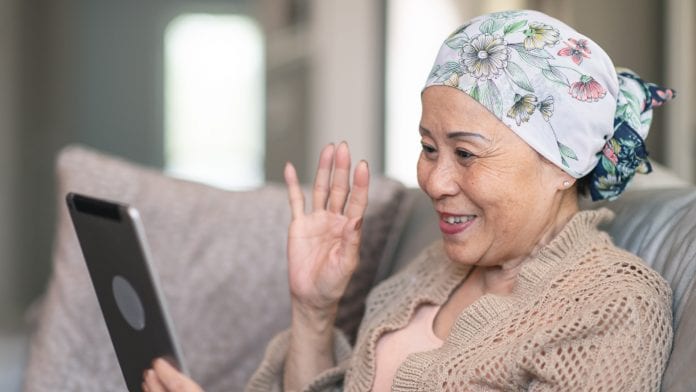
New research has suggested that telehealth could help patients receive the care they need and successfully treat symptoms of cancer.
In light of the COVID-19 pandemic, cancer patients are finding it increasingly difficult to reach face-to-face care. New research, published in Cochrane Library, has suggested that telehealth in the form of telephone interventions carried out by health professionals could be used to treat symptoms of cancer, helping patients to receive the care they need during the COVID-19 pandemic when face-to-face appointments are not possible or are limited.
Is telehealth useful for cancer patients?
Researchers from the University of Surrey have looked at the efficacy of telehealth for cancer symptoms – such as fatigue, anxiety, and depression – by reviewing 32 previous studies, finding that telephone interventions undertaken by nurses have the potential to reduce symptoms.
The researchers that found that evidence of the efficacy of telehealth for other symptoms, such as pain, dyspnoea, and general symptom experience, was limited. They believe this may be mainly due to the limited amount of studies that have been conducted in these areas.
Professor Emma Ream, Director of Health Sciences Research at the University of Surrey, said: “Due to increasing pressures on cancer services in the NHS and the current disruption to services due to COVID-19, it is important that we explore different ways to deliver care to those who need it.
“Telephone interventions delivered by healthcare professionals are one way to do this. Offering care to patients in their own homes is convenient for them, and can make them more comfortable and possibly more open about their feelings when speaking to professionals. They ultimately will reduce foot traffic in hospitals which is very important at the moment in reducing risks of contracting COVID-19 virus. More research is needed to confirm the effectiveness of such interventions.”







